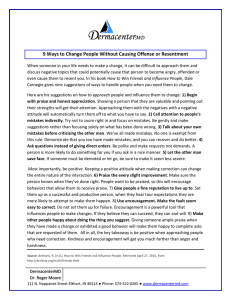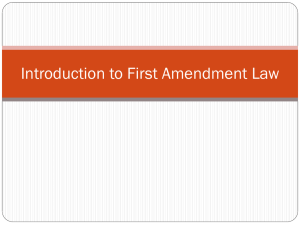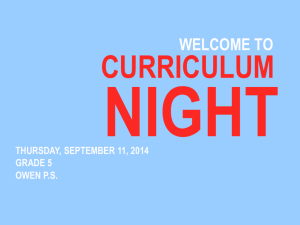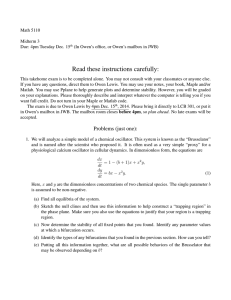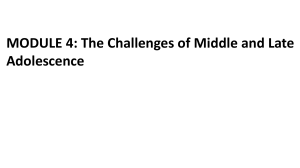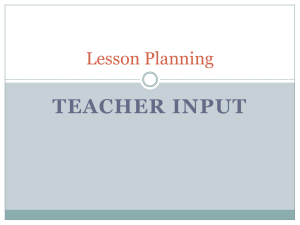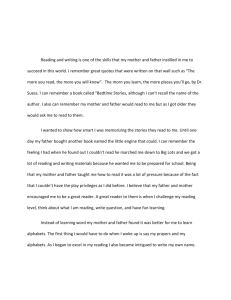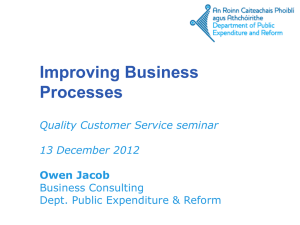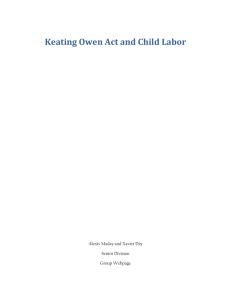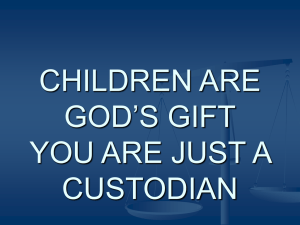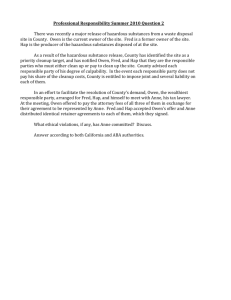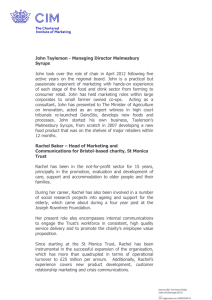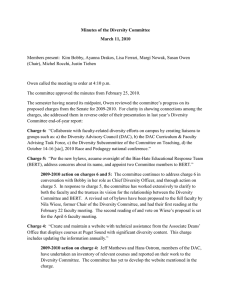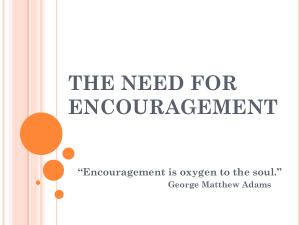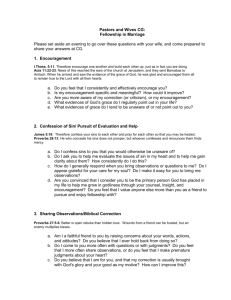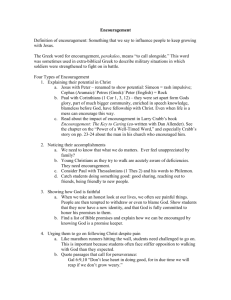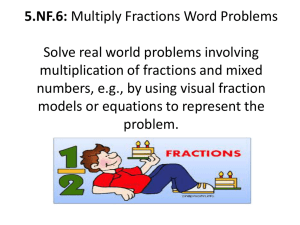Guidance Tradition - CCCCECERobison
advertisement
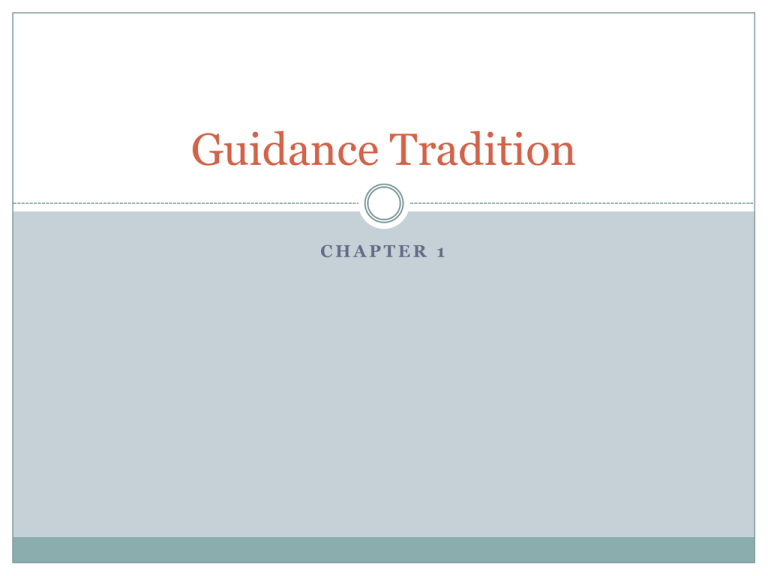
Guidance Tradition CHAPTER 1 Internet Links http://ccccecerobison.wikispaces.com/ Publishers web site http://www.cengagebrain.com/shop/ISBN/9781428 360969?cid=APL1 Basis of Guidance Lies in the belief that human nature has the potential for good. The role of the adult is not to drive the evil out of the child, but rather to help the child develop personal strength to make wise decisions. Autonomy Is the primary goal of guidance. Being able to make decisions Stand up for ones self And ????? Conflict Management Ability to resolve and prevent conflicts. steps include Calm down Define the problem Brainstorm solutions Select solution Try it out If it does not work go through process again Encouraging Classroom Children are viewed as learners and worthy members of the classroom. Positive leadership is displayed Respect is shown Each individual is affirmed John Comenius Valued early childhood and saw parents as a child’s first teacher. All children are deserving of an education Forbid corporal punishment 1592-1670 Johann Pestalozzi Advocated education that addressed “hand, heart and mind” Teachers need to continually monitor their methods to keep children engaged and interested in learning 1746-1827 Robert Owen Owen believed that people are more productive if they are spoken to with respect and treated nicely. children were not punished Teachers were kind 1801-1877 Fredrich Froebel Father of kindergarten Extension of family life Innate impulses of child could develop through play and play like activities Respect for the child 1782-1852 Maria Montessori Children learn through responsible decision making in in a prepared enviroment designed to further each child’s development. Mix of freedom and structure 1870-1952 John Dewey 1859-1952 Progressive education Connection between curriculum, teaching methods and the kind of discipline necessary. Emphasis on project methods Develops cooperation Jean Piaget Children think differently from adults Constructivist education Locus of control 1896-1980 Alfred Adler and the Self Psychologists If children feel safe in all terms in the environment then they will do better. Children need to feel good about themselves before they can participate fully in society Rudolf Dreikurs Teachers need to be leaders not bosses Difference between encouragement and praise Hiam Ginnott Psychology of acceptance Developmentally Appropriate Practice Establish routines and expectations for the children Use modeling and encouragement Redirect behavior Set clear limits Guidance Teaching children to learn from their mistakes, rather than punishing children for making mistakes Teaching children to solve problems rather than punishing children for having problems they cannot solve. Empowering the children to be capable members of the class Conflict Resolution Solve problems and learn how to Parent Teacher Partnerships Positive parent teacher relationships need to be fostered
